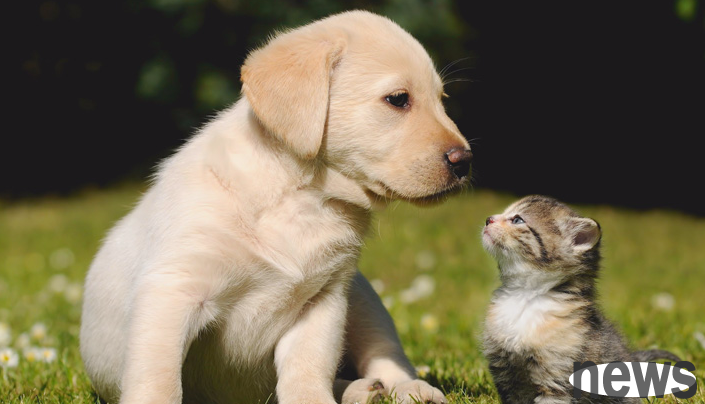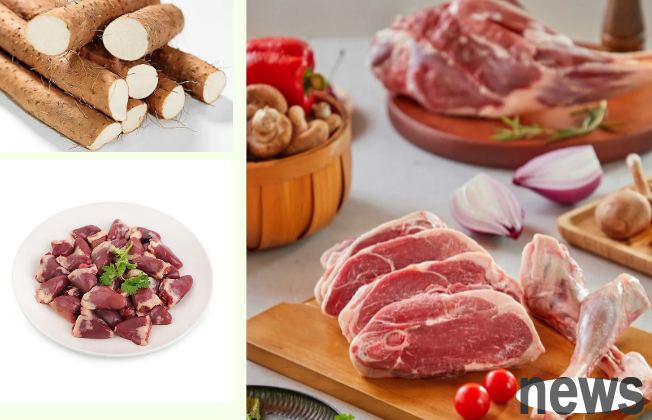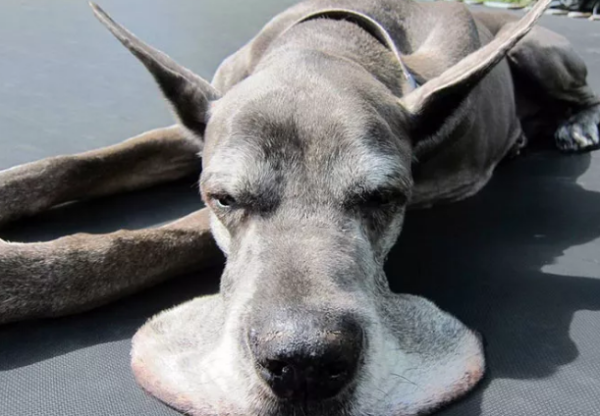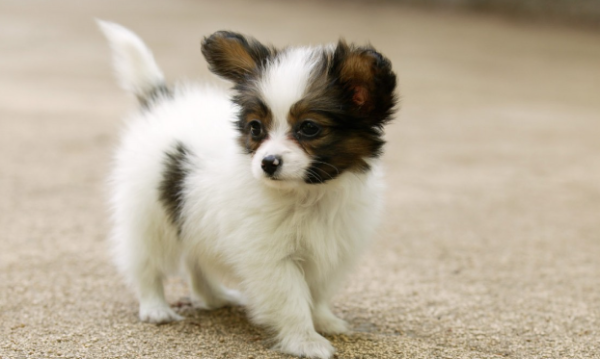Detailed explanation of dog and cat health diet ~
Cat health recipe
should contain a variety of meat, viscera, seafood, vegetables and fruits to ensure balanced nutrition.
1. Meat: such as chicken, beef, mutton, duck, etc. These meats are rich in high-quality protein and essential amino acids, which are crucial to the growth and immune system of cats.
2. Internal organs: chicken liver, chicken heart, rabbit heart, etc. are rich in vitamins and minerals, which are beneficial to the health of cats.
3. Seafood: sardines, saury, etc. are rich in fatty acids and taurine, which are beneficial to the heart and skin health of cats.

4. Vegetables: such as carrots, pumpkins, yams, etc. are rich in vitamins and cellulose, which can improve cats' immunity and promote cats' intestinal peristalsis and digestion.
5. Fruit: apples (cored-free), blueberries, bananas, etc. are rich in antioxidants and vitamins, which are beneficial to the health of cats.
6. Yogurt (sugar-free): contains probiotics, which helps cats intestinal health.
Dog Health Recipes
In addition to normal diet, dog recipes can be adjusted according to different seasons and dog health.
1. Spring
① Cabbage: Rich in vitamins, helps to regulate the stomach and intestines and strengthen bones.
② Pea: Provides protein and carotene, improves immunity and maintains healthy skin.
③ Rapeseed flower: contains carotene, promotes mucosa health, and vitamin B group relieves fatigue.
2. Summer
① Cucumber: Helps maintain bones and blood vessels health and eliminates heat in the body.
② Tomatoes: Contains lycopene and vitamin C, and have good antioxidant effects. It is low in calories and contains a lot of fiber, which is conducive to digestion of dogs.
③Winter melon: rich in moisture and cellulose, clears heat and detoxifies, and can also help urinate.
3. Autumn
① Lotus root: contains vitamin C, which relieves fatigue and relieves throat inflammation
② Mushroom: The mouth mushroom contains riboflavin, which can promote the nutrition and repair of the eyes. Oyster mushroom contains niacin, which helps eliminate fatigue.
③ Pear (nucleation): It can relieve dryness of the body and respiratory organs and has the effect of moistening the lungs.
4. Winter
① Kelp: Supplement potassium and vitamin K, strengthen bones, and help defecate
② Black rice: Rich in vitamin B1, helps keep mucous membranes healthy.
③Black sesame: Contains anthocyanins and linoleic acid, which helps prevent aging and reduce harmful cholesterol accumulation.
Common foods that dogs and cats can eat
1. Carrots: help clean the mouth, rich in vitamins, and increase intestinal peristalsis. It has a great effect on protecting eyesight and maintaining healthy skin.
2. Apple (core removal): removes foreign matter in the mouth and is rich in vitamins.
3. Broccoli: Helps clean teeth and is rich in vitamin K and C.
4. Cooked egg yolk: It can make hair shiny and easy to digest, and is rich in unsaturated fatty acids, calcium, phosphorus, iron and other minerals.
5. Salmon: Rich in Omega-3 fatty acids and trace elements, which can improve skin and hair.
6. Oats: Rich in dietary fiber, vitamins and minerals, which are good for digestion.
7. Pumpkin: Rich in dietary fiber and carotene, promoting gastrointestinal motility.
8. Sheep cheese (pets are lactose-free intolerance): rich in protein and calcium, easy to digest, and can also be used as a training reward snack.
9. Yogurt (sugar-free): rich in probiotics and promotes gastrointestinal digestion.
10. Chicken soup and fish soup (no salt added): contains trace elements. Appropriate feeding can ensure the nutritional balance of the dog.
11. Peanut butter (pets are not allergic and cannot be eaten in large quantities): contains protein, vitamins, niacin and other nutrients. Peanut butter without additives is very suitable for dogs.
12. Chicken breast: rich in protein, low in fat, easy to be absorbed by dogs, and has the effect of enhancing physical strength and strengthening the body.
13. Fish oil: rich in unsaturated fatty acids, taurine, amino acids, etc. can shine hair, promote new hair growth, and effectively reduce hair loss. Lubricate joints to relieve pain and promote the recovery of skin diseases.
14. Bones: Peeled chicken neck, duck neck and rabbit ribs, chicken wing tips, wings neutralize wing roots, do not heat them and give them to pets for food. Be careful not to feed your pets hard, brittle and potentially sharp edges.
Foods that cats and dogs cannot eat
1. Spices: Myristine contained in nutmeg plants can cause too fast heart rate, vomiting and abdominal pain, and also affect the central nervous system.
2. Domestic raw food: such as raw eggs, pork, beef, duck, fish, etc. The domestic quarantine standards cannot meet the raw food that can be eaten directly, so it is not recommended to feed raw food directly.

3. Nuts: walnuts, hawaiian nuts, peanuts, cashews. Many nuts contain too much phosphorus and should not be eaten.
4. Fruit seeds: seeds of apples, pears, loquats, peaches/plums/plums/mangoes. The kernels and salmon fruits of these fruits contain cyanide, which will cause the normal release of oxygen in the blood. In mild cases, symptoms such as headache, dizziness, nausea and vomiting may occur. In severe cases, difficulty breathing, disorders of consciousness, and even respiratory paralysis, and heartbeat will stop causing death.
5. Fruit: cherries, peaches, apricots, which can cause symptoms such as vomiting, difficulty breathing in pets, and shock. Excessive potassium content of peach can easily lead to acute renal failure.
6. Vegetables: avocado, green tomatoes and raw potatoes. These foods contain glyceric acid. Because cats and dogs cannot metabolize, it will cause gastrointestinal discomfort, vomiting and diarrhea, difficulty breathing, and even death. In addition, no vegetables can be consumed in large quantities, which may cause gastrointestinal disorders or even fatal.
7. Human medicines: Many painkillers and some ingredients contained in cold medicines are toxic to cats and dogs.. People should never give them cold medicines to take.
8. Candy: Candies containing xylitol, xylitol will increase the flow of insulin that takes off and lowers the effects of sugar, and will also cause damage to the pet's liver. A small amount is enough to cause pet's kidney failure.
9. Alcohol-containing foods: Cats and dogs have poor liver metabolism and detoxification function. Intake of alcohol will cause too much burden, causing poisoning, coma and death.
10. Seasonings: onion, ginger, onion, pepper, chili, salt, etc.
11. Coffee and Tea: The lethal amount of caffeine to cats is 80 to 150 mg per kilogram of body weight, and there is also a saying is 100 to 200 mg. If you buy dry food or snacks containing green tea ingredients, be sure to pay attention to whether it indicates that caffeine is removed.
12. Chocolate and Cocoa: Contains cocoa alkali, which is highly toxic and can cause severe vomiting and diarrhea in a very short time, and even fatal heart attacks.
Pets must not be eaten! ! !
(Human Drugs)
(Xylitol)
(Alcohol and its Products)
(Coffee)
(Spice)
(Nuts)
If you keep a pet, it becomes a member of our family. You must understand everything about it and care for it carefully. Follow pets’ dietary taboos and safety precautions to ensure they are healthy and happy.













